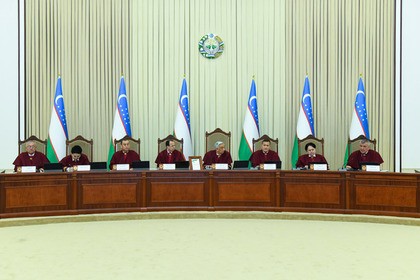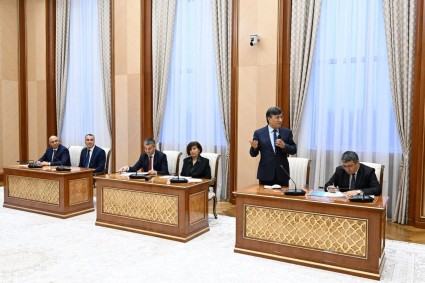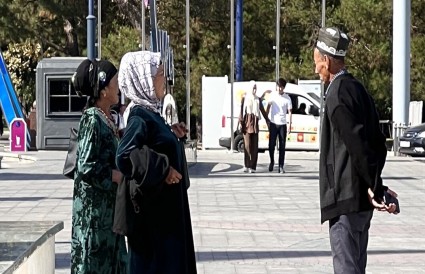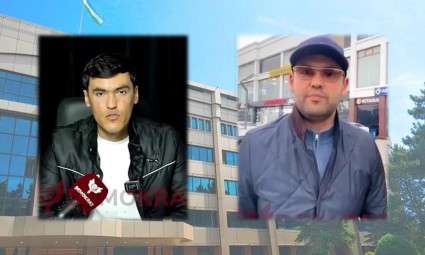The judges of the Constitutional Court of Uzbekistan at the Dec 5 session discussed some issues related to constitutional legality in the country.
The updated Constitution now has direct effect, regardless of the adoption and availability of relevant laws and other regulatory documents. In particular, since May, when a referendum on the Constitution was held, courts have directly applied the provisions of the Constitution in more than 21 thousand criminal, administrative, civil cases and economic disputes.
They noted at the meeting that in 2022-2023, the Constitutional Court examined appeals and law enforcement practice under 119 laws and 1,384 other legal acts.
The Constitutional Court believes that, taking into account the cases of violation of children's rights, it is necessary to protect them from various forms of violence, increase the responsibility of parents, educational institutions and other responsible bodies in this regard, as well as further improve legislation.
“Despite a significant decrease in cases of non-compliance with guarantees of property rights, given that problems in this area still remain, it is necessary to improve the legal culture of local government authorities on these matters, to form an absolutely intolerant attitude of law enforcement agencies towards violations of property rights, and also to strengthen preventive measures in this direction,” the message says.
In provinces, there are cases when business entities cannot freely export their products from the province, therefore, all responsible persons are required to unconditionally comply with constitutional guarantees of the free movement of goods and services, the Constitutional Court indicated.
The court noted that any measure of legal influence must be justified, fair, necessary and sufficient to achieve its goal and should not unreasonably limit the rights and freedoms of citizens, i.e. beyond the level that allows achieving the goal of the measure of legal influence.
To ensure the principles of proportionality and sufficiency of the penalties applied, they proposed to review some criminal and administrative sanctions, financial sanctions, penalties (fines, penalties) and other measures.
The Constitutional Court called on government agencies to abolish the practice of courts submitting information about their activities to the councils of people's deputies, taking into account that “this may jeopardize the independence and impartiality of the courts,” and also to ensure the principle of separation of powers. This proposal was also contained in the program of presidential candidate Robakhon Makhmudova.
In addition, the Constitutional Court proposed to include requirements for compensation for damage caused to victims by certain types of crimes, primarily fraud, as a prerequisite for replacing the convicted person with a more lenient sentence.
Members of the court also supported the development of a concept for the development of a secular state. They consider it appropriate to “adopt it at the level of law as a national value.”
Information on the state of constitutional legality in the country was sent to the chambers of the parliament and to the president of Uzbekistan.















